The most profound sense in which the Roman Empire declined#
Posted 2024-03-02
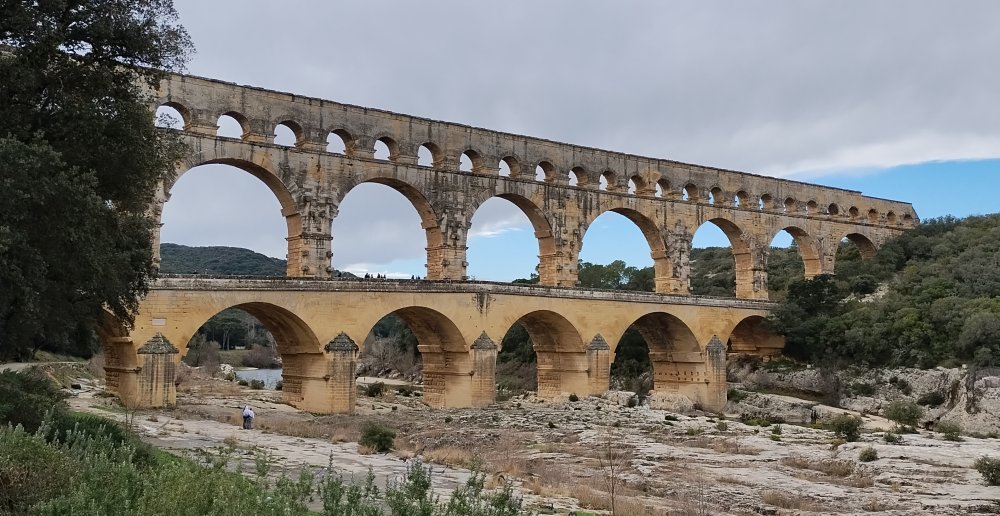
Advanced engineering and infrastructure is a seldom celebrated but principal distinction of the Roman Empire. Historians often focus on accounts of the emperors, the pageants and games, the generals, and the conquests, but most of these were only possible due to the cultivation and application of engineering might that enabled them. The Romans leaped into the future with massive development and construction of machines, roads, buildings, bridges, and public-works infrastructure. To the tribes and peoples around the fringe of the empire it might well have seemed like Roman advances were like glimpsing into the future. Julius Caesar's written account of his Gallic War campaign provides a wonderful example of this contrast: Caesar and his legions arrived at the bank of the Rhine with an eye to putting down the troublesome Germanic plunderers. Looking on from the shelter of the forest, the Gaul warrior scouts were confident -- from all prior experience -- that the natural barrier of the river deprived the Romans the benefit of their dazzling assault weaponry and numbers. But then something new and mesmerizing took place before the Gauls' eyes: the legion's engineers and laborers rapidly -- in 10 days -- spanned the river with a wide and formidable bridge. And just like that, the river was a bulwark no more, and a rapid advance of all elements of the Roman war machine commenced. Engineering might had become the differentiator.
However, on par with the extraordinary, multi-century period of advance, my position is that infrastructure-engineering skill and commitment then underwent a breathtaking decline upon the empire's fall, possibly unequaled in history. The label "dark ages" is now considered pejorative and overstated, but it may be an entirely defensible label to put on this particular aspect of demise. With the collapse of the Western Empire, the whole spectrum of its engineering feats fell into disrepair just as fast as the forces of nature could take them there. Nature was unopposed by either human will or knowledge. It is amazing to reflect that in only a few generations feats like the famed Roman baths and the waterworks that powered them were allowed to crumble, fail, and become rubble and quarry for the decidedly cruder invaders that had overrun and taken dominion over them.
This decline is what's top of mind when I visit remnants of Roman Empire engineering feats. I'm grateful for the surviving artifacts and archaeological recovery work, but I marvel at how much was lost in the early middle ages -- and by the very people whose daily lives could have been improved. Below I share pictures from recent visits to Pont du Gard and the Arles Amphitheatre, where such Roman feats survived those dark ages sufficiently intact that the accomplishments can still be appreciated.
Pont du Gard: here are three pictures from the Pont du Gard aqueduct bridge, which is estimated to have been completed about 45AD, and which dutifully supplied the water for the baths and other needs of Nimes until falling into disrepair with the end of the Western Empire. (The picture at the top of this blog is of course also Pont du Gard.)
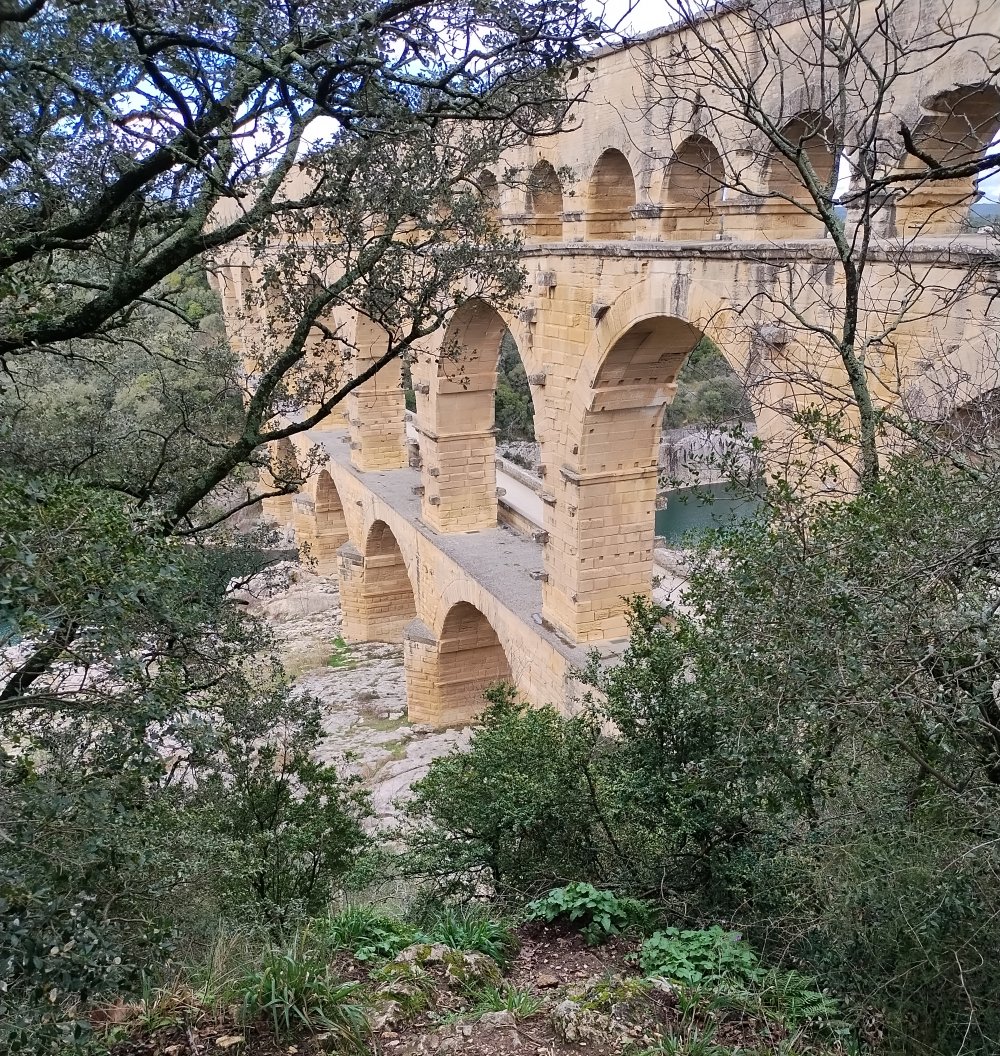
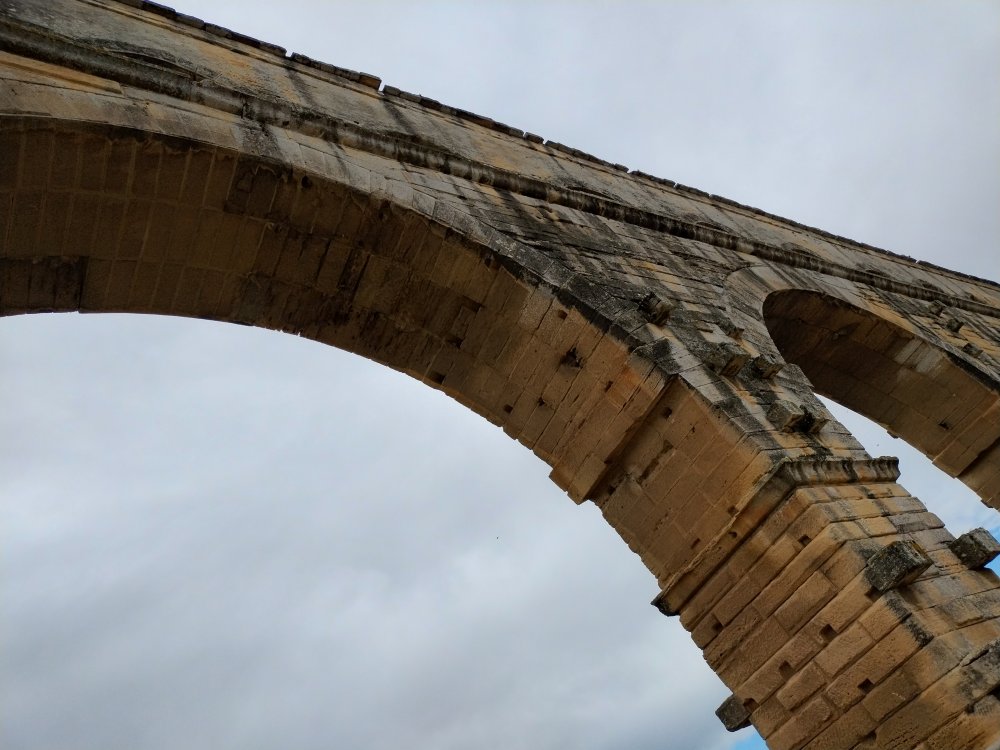
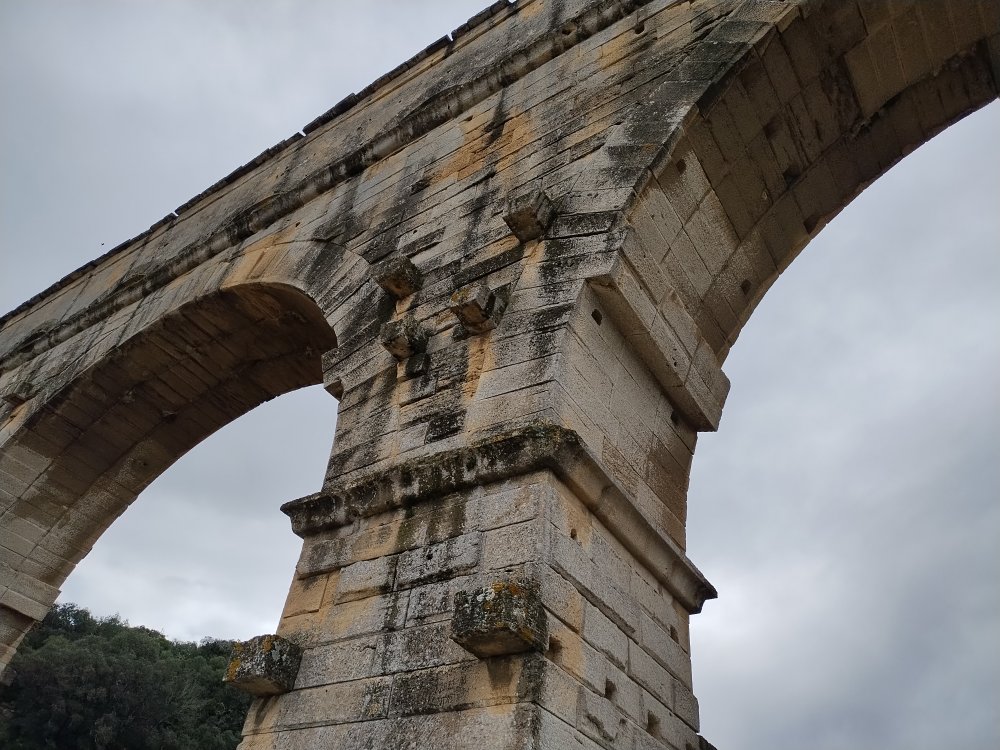
Arles Amphitheatre: here are a few pictures of the stalwart 90AD-constructed amphitheatre/colosseum at Arles, which has basically never gone out of use, though its uses have been varied in the extreme. It was rehabilitated at the behest of Prosper Mérimée in 1825 to once again serve as a working arena. Essentially a modern bleacher system was integrated into what remained of the original stone seating structure and has been maintained ever since (workers were making minor repairs to wooden bench seats on the day I visited). The arena continues to be used for the Feria d'Arles bullfights, for concerts, and for sporting events such as sand volleyball tournaments.
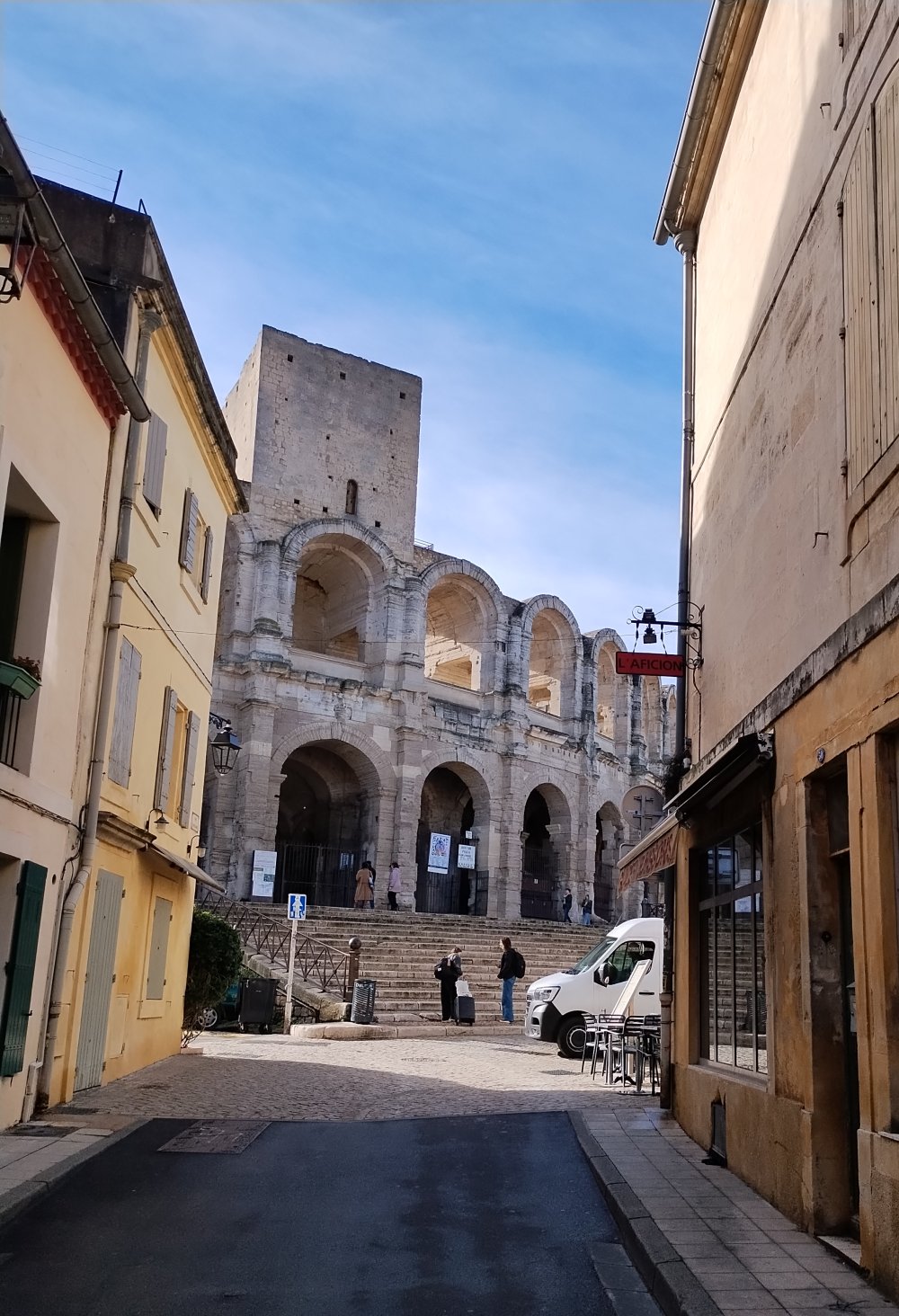
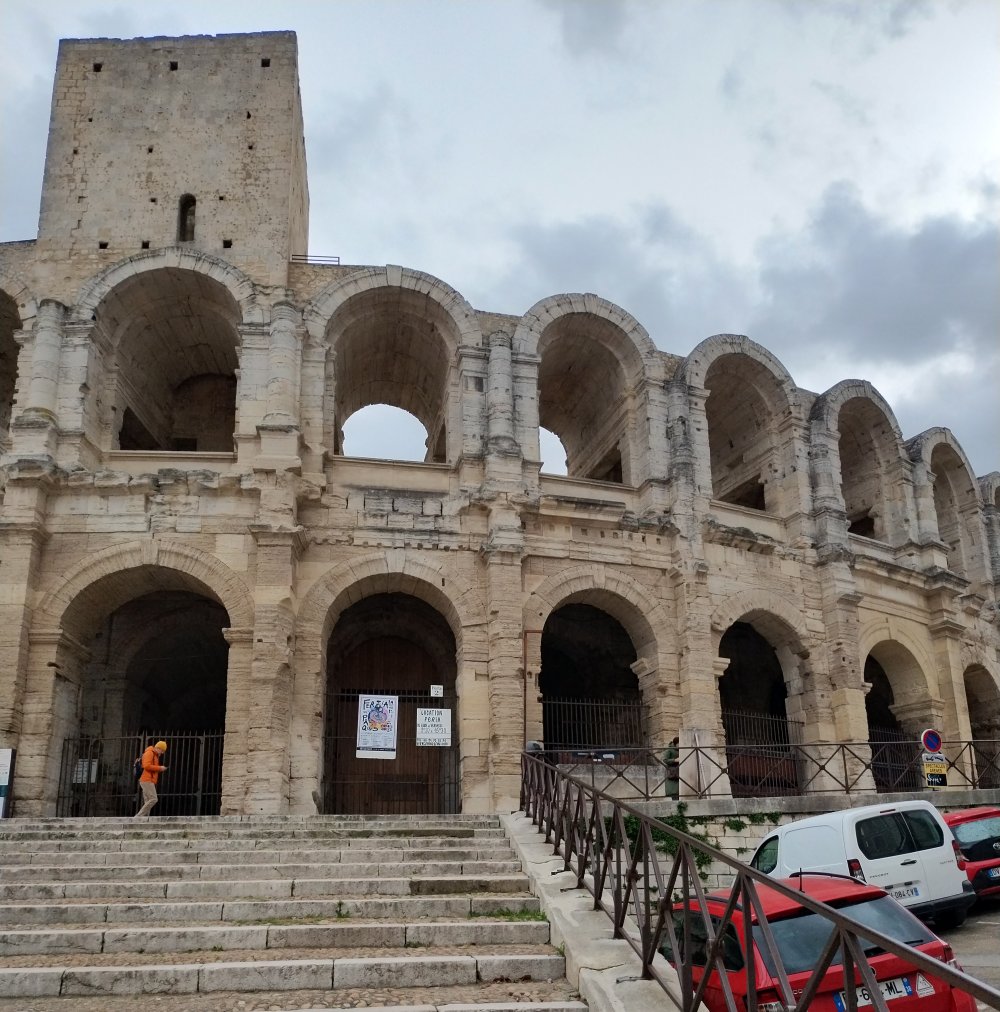
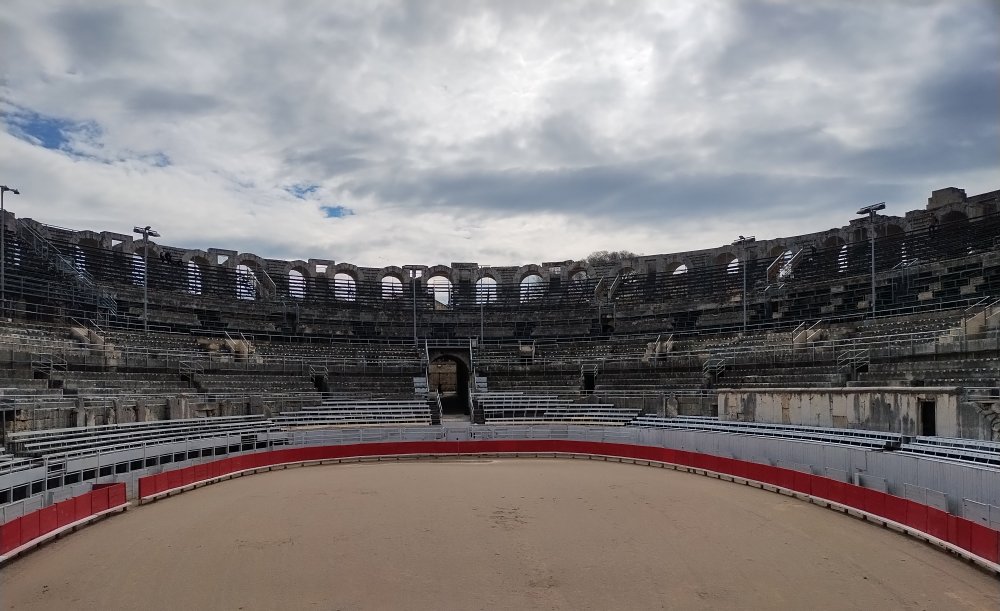
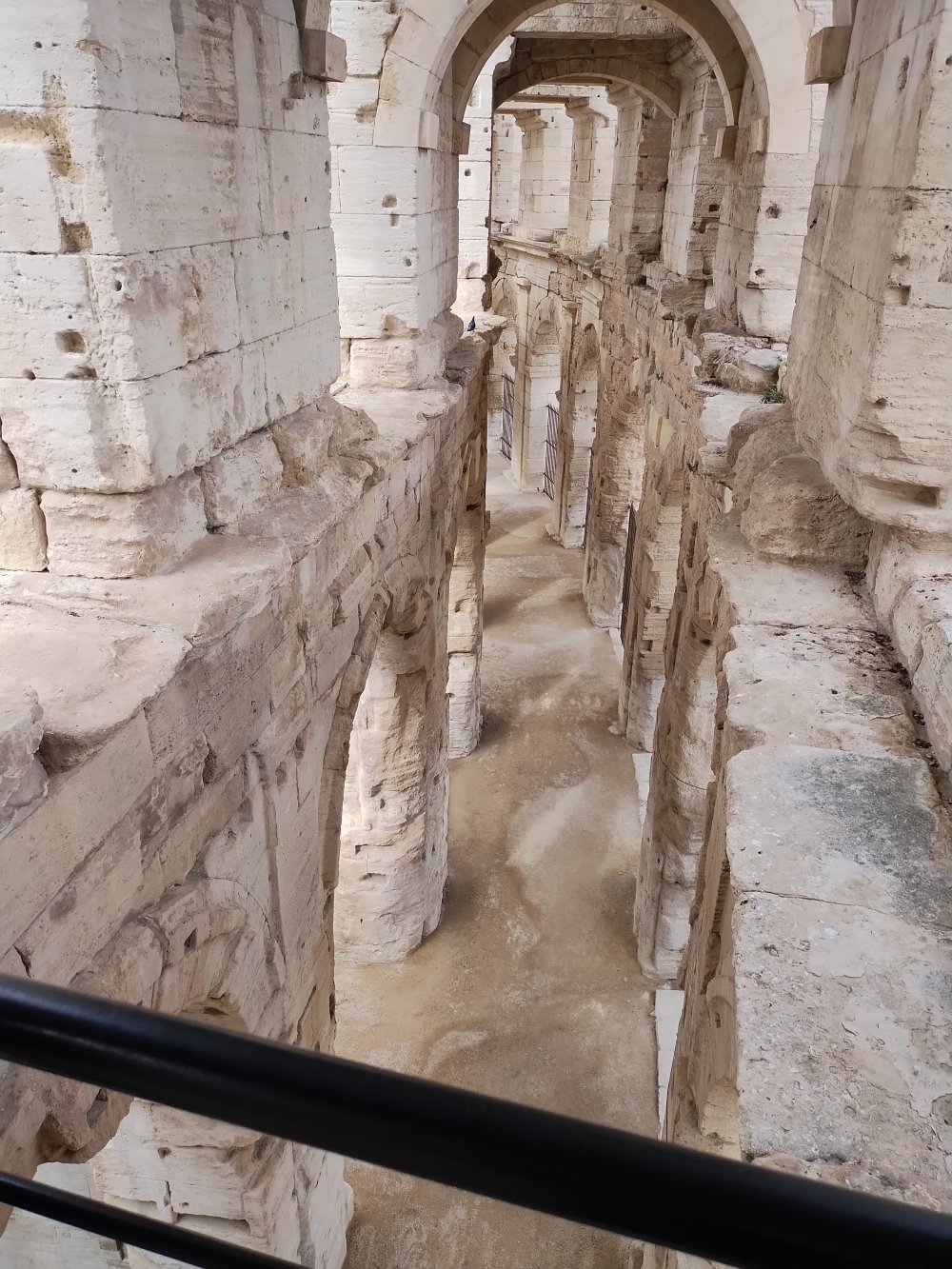
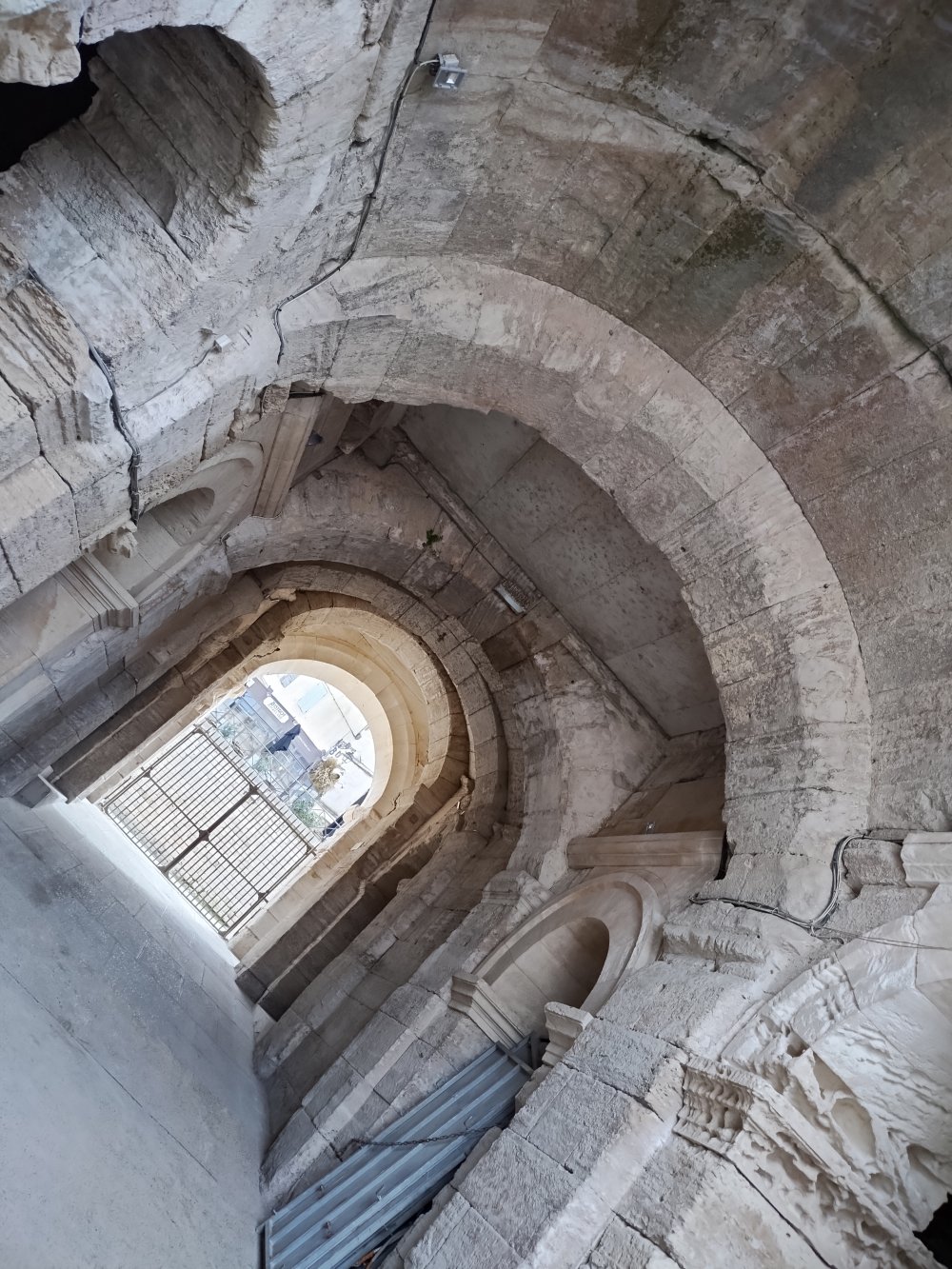
More information:
